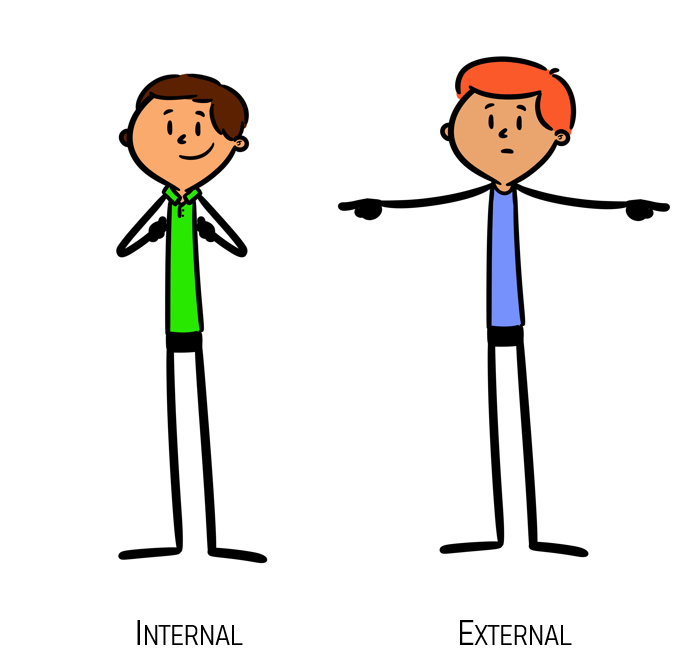After completing some surface-level
research and gaining a basic understanding of locus of control, I was
interested to take the quiz to determine what type of motivation I carry. After
reading the description of internal focus( tend to be motivated by their
actions, in control of their exercise and eating habits, driven in school), I
felt pretty confident I would fall very close to the most extreme of this
category. External locus of control tends to be more likely to conform, to
follow, or to be carefree. Much to my surprise- I fell somewhere in the middle
of the continuum but closer to external locus of control. I did some reflecting
on this surprising result and realized that while I perceive myself to be a bit
of a “control freak,” my faith and religion weighed heavily in my results to
the test. Spirituality and values, as we have learned, are just as valuable in
intervention planning as body structures or functions.
My results
are an important lesson in considering the “whole client” when treating individuals. A client that has an
internal locus of control might ask “what can I do more of to improve?” or have
a “let’s get this done” attitude. When treating these clients, I want to be
aware that they take ownership and responsibility for their actions very
seriously. Clients that have had a stroke or significant accident, might blame
themselves in the recovery. They might be upset with themselves if they are not
progressing and want to work harder to improve. I want to remind clients with
an internal locus of control that while we can work hard, perform repetition,
or practice over and over, the body takes time and energy to naturally heal. We
do not have full control over the way that our body recovers after surgery, regains abilities after a
stroke, or heals after an injury. As a practitioner, I will focus on the
strengths and motivations of these individuals while not allowing them to
misplace blame on themselves in difficult or emotional times.
A client
with external locus of control might be more likely to say “whatever you tell
me!” or ask for more sessions when their discharge is approaching. This client might believe that the accident
or illness was completely out of their hands and have the advantage of being
more relaxed or receptive while healing. Unlike the individual with an internal
locus of control, this client may be less likely to take responsibility and
initiative in their therapy. In treating individuals with external locus of
control, I want to set them up for success by reinforcing their value and
responsibility in gaining independence. I want to remind them that it is a team
effort and that they can take charge of what they do at home to make
gains.



No comments:
Post a Comment